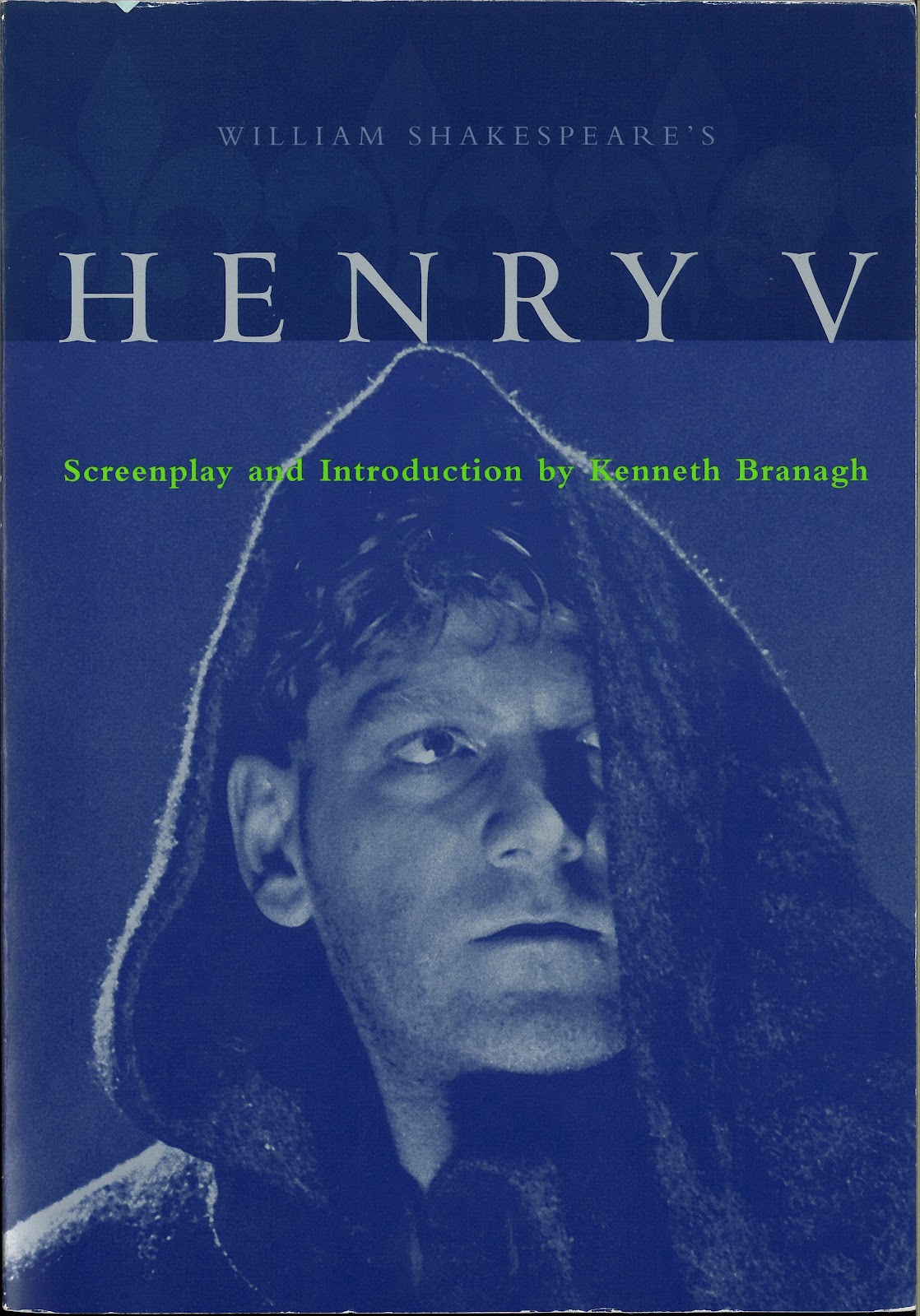You might expect someone who teaches Shakespeare and film to pay a great deal of attention to screenplays.
Once again, Bardfilm foils your expectations.
But I've been paying more attention to them recently—see my comments on the screenplay for Kenneth Branagh's Much Ado About Nothing. I'm not quite at the stage of requiring a screenplay as a textbook for my Shakespeare and film course, but that day may come (the screenplay for the Branagh Hamlet is very tempting, for instance).
Before looking at that screenplay, I looked at Branagh's screenplay for Henry V. I've used that for some time because I find the descriptions to be very telling. My instinct is to read the film itself without depending on outside influences. But it's nice to have my speculative claims about a scene in a film confirmed with reference to the screenplay.
Let me show you two interesting moments. The first is the incorporation of a scene from 1 Henry IV (and a line from 2 Henry IV) into the film. Note the stage directions (film directions? . . . I'm uncertain of the terminology here) surrounding Hal's voiceover "I do. I will" and "I know thee not, old man."
Falstaff seems able to read the message of the voiceover just from the looks Hal gives him.
Of perhaps more interest is the way the screenplay talks about the scene after the Battle of Agincourt. If you recall, there's a moment where some women come forward through the chaotic aftermath of the battle. They're quickly moved to the side by the French Mountjoy. Here's what the screenplay has to say:
I think we probably easily gather that these women are the mothers and daughters of the French soldiers who have died in the battle. But I don't know that we'd get all this from the visuals themselves:
As he passe[s] MONTJOY, French women rush toward him screaming. They recognise him as the man to blame. MONJOY holds them back as HENRY passes and finally moves onto a cart where the bodies of the dead boys are being piled.





No comments:
Post a Comment